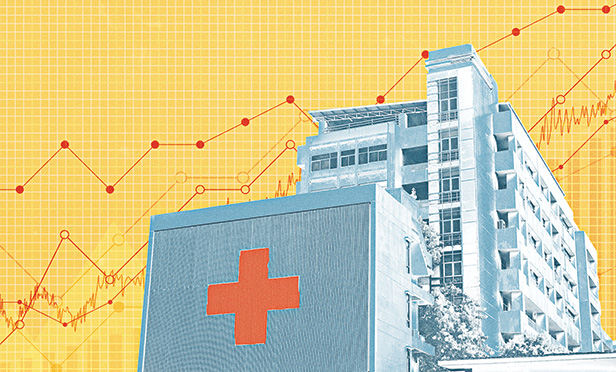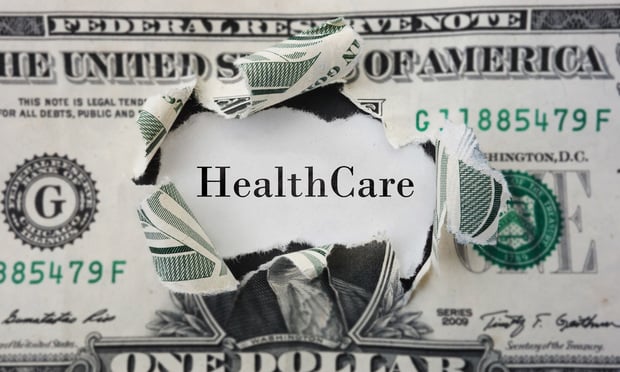 Twenty nine of 30 states who hadprojections for fiscal year 2021 anticipated total Medicaidspending would continue to increase over the previous year'snumbers, thanks to rising enrollment.
Twenty nine of 30 states who hadprojections for fiscal year 2021 anticipated total Medicaidspending would continue to increase over the previous year'snumbers, thanks to rising enrollment.
A few short months ago, buoyed by a robust economy, U.S. states anticipated littleto no growth in Medicaid spending.
|But that changed around March, when public efforts to stem thespread of COVID-19 led businesses, municipalities, states andentire countries to cut jobs and halt key revenue-generatingoperations. Now, officials say health care and public finances areabout to collide in a way no one anticipated at the start of theyear.
|"The coronavirus pandemic has generated both a public healthcrisis and an economic crisis, with major implications forMedicaid, a counter-cyclical program," according to Kaiser FamilyFoundation and Health Management Associates, which sent a rapidsurvey to Medicaid directors in all 50 states and the District ofColumbia. "During economic downturns, more people enroll inMedicaid, increasing program spending at the same time state taxrevenues may be falling."
|Click here to see the surveyresults
|Thirty-eight states responded to the survey. Some were still inthe process of analyzing the impact of coronavirus at the time ofthe survey, and had not completed enrollment and spendingprojections for fiscal years 2020 and 2021.
|But one thing was clear: Nearly all states that had updatedprojections anticipated spikes beyond their pre-pandemic estimates,come July 1, the start of the new fiscal year.
|Twenty nine of the 30 states that had projections for fiscalyear 2021 anticipated total Medicaid spending would continue toincrease over the previous year's numbers, thanks to risingenrollment.
|Unemployment factor
Medicaid enrollment and spending grow during economic downturns,Kaiser Family Foundation and Health Management Associatesreported.
|That paints a bleak picture for the year ahead.
|The groups cited public data showing the U.S. economy lost 20.5million jobs, as unemployment increased to 14.7 percent during thepandemic. They pointed to Congressional Budget Office estimatesthat predict the unemployment rate will average 15 percent duringthe second and third quarters of 2020, up from less than 4 percentin the first quarter. Those numbers will likely drop next year, butunemployment will still hover around 9.5 percent by the end of 2021–about 6 percentage points higher than January 2020, according tothe budget office's statistics.
|Meanwhile, Americans who lost jobs between March 1 and May 2,2020, would have likely used their unemployment insurance benefitsinsurance benefits, Congressional Budget Office data show.
|What this means is that nearly 17 million people could be newlyeligible for Medicaid, and about 6 million for marketplacesubsidies, if they remain unemployed, according to Kaiser FamilyFoundation projections.
|This prompted the Congressional Budget Office to write a letterto the chair of the House Budget Committee, to say that withoutfurther funding from the federal government, states would need toincrease taxes or reduce spending–both of which would reducespending and cause more job losses.
|Click here to read the full letter
|To offset this, some states plan to take steps to "put upwardpressure on spending and potentially offset expenditure reductionsdue to decreased utilization." They propose waiving copayments andprior authorization requirements, allowing early pharmacy refills,expanded telehealth services and reimbursement rates, andincreasing provider rates, especially for hospitals, nursingfacilities, and other long-term services providers, according tothe survey findings.
|Samantha Joseph is a litigation editor inthe global newsroom of BenefitsPRO parent company ALM. Contact: [email protected]. On Twitter: @SjosephWriter
|Read more:
Complete your profile to continue reading and get FREE access to BenefitsPRO, part of your ALM digital membership.
Your access to unlimited BenefitsPRO content isn’t changing.
Once you are an ALM digital member, you’ll receive:
- Critical BenefitsPRO information including cutting edge post-reform success strategies, access to educational webcasts and videos, resources from industry leaders, and informative Newsletters.
- Exclusive discounts on ALM, BenefitsPRO magazine and BenefitsPRO.com events
- Access to other award-winning ALM websites including ThinkAdvisor.com and Law.com
Already have an account? Sign In
© 2024 ALM Global, LLC, All Rights Reserved. Request academic re-use from www.copyright.com. All other uses, submit a request to [email protected]. For more information visit Asset & Logo Licensing.








